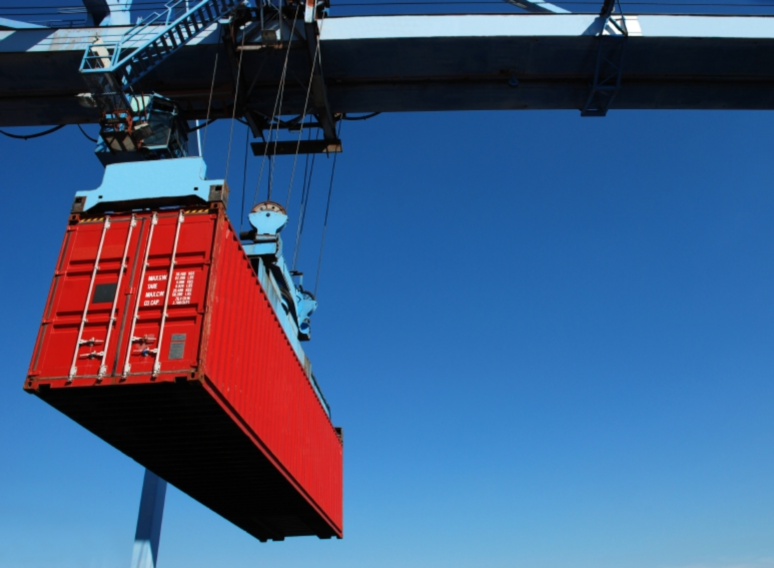Trade transaction costs fall in APEC region, research reveals

Trade transaction costs across the Asia-Pacific region have fallen 5%, resulting in US$ 58.7 billion in total savings for businesses, research shows.
In a new report released, an independent research team has investigated whether APEC met its target of reducing trade transaction costs between 2007 and 2010, after implementing a comprehensive action plan to facilitate trade in the Asia-Pacific region.
The report reveals that although fees and charges for importers and exporters increased across the region between 2006 and 2010, the amount of time taken to clear goods across borders decreased, resulting in an overall drop of 5% in trade transaction costs and therefore cost savings for businesses.
“The reduction is good news for businesses and economies in the Asia-Pacific region. Given the uncertainty of the global economy, trade facilitation is now even more crucial to supporting sustainable economic growth,” said Denis Hew, Director of the Policy Support Unit, the team responsible for the report.
“Reducing trade transaction costs boosts the profitability of businesses and helps create jobs. Introducing measures so that goods flow more easily at, across and behind borders also increases the competitiveness of markets and brings lower prices for consumers,” Dr Hew said.
“As the volume and complexity of trade across the Asia-Pacific region grows, streamlining and simplifying import and export procedures so that goods and services are delivered more efficiently and cost effectively is paramount,” he said.
The report, which can be downloaded from the APEC website, will be circulated to APEC Trade Ministers and senior officials for discussion in Honolulu this week.
The report shows that total fees and charges rose in real terms across the region by US$ 6.3 billion between 2006 and 2010 for importing and exporting all merchandise, an increase of 4.8%.
However the amount of total time taken to complete trade-related procedures dropped, which represents a decrease in costs of US$ 65 billion, or 6.2 percent from 2006. Thus, overall trade transaction costs resulted in total savings for businesses of US$ 58.7 billion.
The costs – the fees and charges plus the monetary value of the time spent getting goods to market - relate to document preparation, customs clearance and technical control, ports and terminal handling and inland transport and handling.
The researchers measured trade transaction costs in the region as part of their assessment of the success of APEC’s Trade Facilitation Action Plan II (TFAP II). The assessment found that APEC had reached its target of reducing trade transaction costs by 5% between 2007 and 2010, a goal set by APEC Leaders in 2005.
Total trade transaction costs fell from US$ 1.187 trillion in 2006 to US$ 1.128 trillion in 2010.
Under TFAP II, APEC has been carrying out projects around the region to encourage economies to undertake reforms and improvements to streamline trade in four priority areas; customs procedures, standards and conformance, business mobility and electronic commerce (data privacy and paperless trading).
In their report, the researchers conclude that APEC has made “significant progress to improve trade facilitation and reduce trade transaction costs through the measures implemented under TFAP II.”
Monica Contreras, chair of APEC’s Committee on Trade and Investment, welcomed the findings, which showed APEC has successfully identified obstacles that hinder trade and implemented actions and measures to address them, thereby bringing real results to the business community.
“While we are enthusiastic about the progress made by APEC, we also recognize that there is more that can be done to improve trade facilitation across the region, therefore further efforts in this regard have been already deployed ” Ms Contreras said.
TFAP II is one of many APEC initiatives aimed at increasing free trade and investment and strengthening regional economic integration to assist economic growth and prosperity for its people. TFAP II follows the first successful action plan, which worked to reduce costs also by 5% over four years to 2006.
The new report shows that by 2010, net savings were realized in most stages of the logistics chain across the APEC region. Substantial time savings were realized – the average time spent to prepare documentation for example was reduced by two days for both imports and exports.
However fees and charges rose strongly in real terms, particularly in ports and terminal handling.
On average it took 17 days and US$ 842 to complete an APEC export transaction for a single, standard container of goods in 2006. In 2010, it took 15 days and US$ 856. Previously in 2006, it took 17 days and US$ 941 to complete such an APEC import transaction; in 2010 it took 15 days and US$ 923.
For the main report, go to:
“APEC’s Achievements in Trade Facilitation 2007-2010”
“Final Assessment of Second Trade Facilitation Action Plan (TFAP II)"
http://publications.apec.org/publication-detail.php?pub_id=1211
For detailed measurements of trade transaction costs, including figures for each economy, go to:
“Aggregate Measurement of Trade Transaction Costs in APEC 2007-2010”
http://publications.apec.org/publication-detail.php?pub_id=1212
For assessment of APEC’s progress in the four priority areas, go to:
“Trade Facilitation through Customs Procedures: Assessment of APEC’s Progress”
http://publications.apec.org/publication-detail.php?pub_id=1213
“Reducing Business Travel Costs: The Success of APEC’s Business Mobility Initiatives”
http://publications.apec.org/publication-detail.php?pub_id=1214
“Facilitating Electronic Commerce in APEC: A Case Study of Electronic Certificate of Origin”
http://publications.apec.org/publication-detail.php?pub_id=1215
“Reducing Trade Transaction Costs: Harmonization of Standards and Conformity Assessments in APEC”
http://publications.apec.org/publication-detail.php?pub_id=1207
# # #
For more information, contact: Augustine Kwan +65 9831 0717 at [email protected] or Michael Chapnick +1 (202) 262 8306 at [email protected] or Trudy Harris +65 98983710 at [email protected].
Details about APEC meetings, events, projects and publications can be found at www.apec.org or www.apec2011.gov. You can also follow APEC on Twitter and join us on Facebook.

